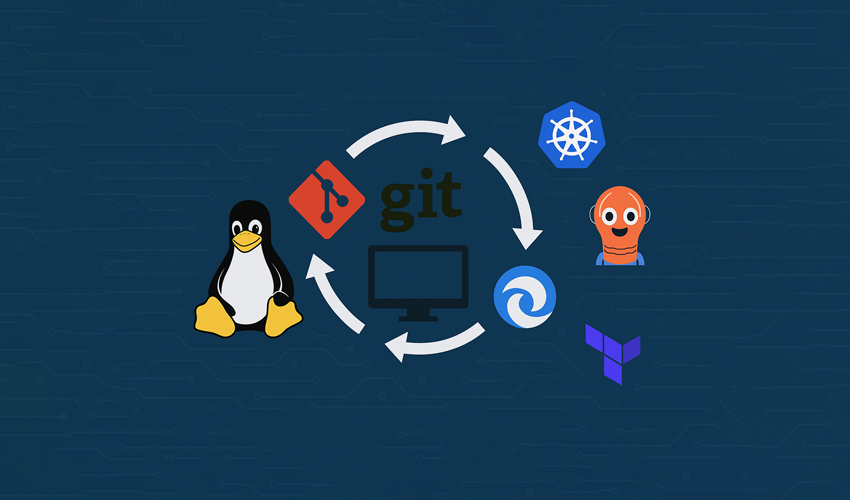Harnessing GitOps on Linux for Seamless, Git-First Infrastructure Management

Introduction
Imagine a world where every server, application, and network configuration is meticulously orchestrated via Git, where updates, audits, and recoveries happen with a single commit. This is the realm GitOps unlocks, especially potent when paired with the versatility of Linux environments. In this article, we'll dive deep into how Git-driven workflows can transform the way you manage Linux infrastructure, offering clarity, control, and confidence in every change.
GitOps Demystified: A New Infrastructure Paradigm
GitOps isn't just a catchy buzzword, it's a methodical rethink of how infrastructure should be managed.
-
It treats Git as the definitive blueprint for your live systems, everything from server settings to application deployments is declared, versioned, and stored in repositories.
-
With Git as the single source of truth, every adjustment is tracked, reversible, and auditable, turning ops into a transparent, code-centric process.
-
Beyond simple CI/CD, GitOps introduces a continuous reconciliation model: specialized agents continuously compare the actual state of systems against the desired state in Git and correct any discrepancies automatically.
Why Linux and GitOps Are a Natural Pair
Linux stands at the heart of infrastructure, servers, containers, edge systems, you name it. When GitOps is layered onto that:
-
You'll leverage Linux’s scripting capabilities (like bash) to craft powerful, domain-specific automation that dovetails perfectly with GitOps agents.
-
The transparency of Git coupled with Linux’s flexible architecture simplifies debugging, auditing, and recovery.
-
The combination gives infrastructure teams the agility to iterate faster while keeping control rigorous and secure.
Architecting GitOps Pipelines for Linux Environments
Structuring Repositories DeliberatelyA well-organized Git setup is crucial:
-
Use separate repositories or disciplined directory structures for:
-
Infrastructure modules (e.g., Terraform, networking, VMs),
-
Platform components (monitoring, ingress controllers, certificates),
-
Application-level configurations (Helm overrides, container versions).
-
-
This separation helps ensure access controls align with responsibilities and limits risks from misconfiguration or accidental cross-impact.

 GNOME 49 re-enables X11 session support in GDM after it broke the ability to launch other desktop environments. It plans full removal in GNOME 50.
GNOME 49 re-enables X11 session support in GDM after it broke the ability to launch other desktop environments. It plans full removal in GNOME 50. The new Linux Mint 22.2 release is available for download. It features theme changes, fingerprint support, and updated apps. More details inside.
The new Linux Mint 22.2 release is available for download. It features theme changes, fingerprint support, and updated apps. More details inside. Warp, the Agentic Development Environment, for Windows, macOS and Linux has launched a suite of new features to improve prompt-based coding.
Warp, the Agentic Development Environment, for Windows, macOS and Linux has launched a suite of new features to improve prompt-based coding.  US judge in antitrust case rules Google can keep paying Mozilla and other companies for default search placement, but bans exclusive contracts.
US judge in antitrust case rules Google can keep paying Mozilla and other companies for default search placement, but bans exclusive contracts. GIMP 3.1.4 is out, a fresh development snapshot of what will become the next major stable release. It introduces two long-awaited new features.
GIMP 3.1.4 is out, a fresh development snapshot of what will become the next major stable release. It introduces two long-awaited new features.